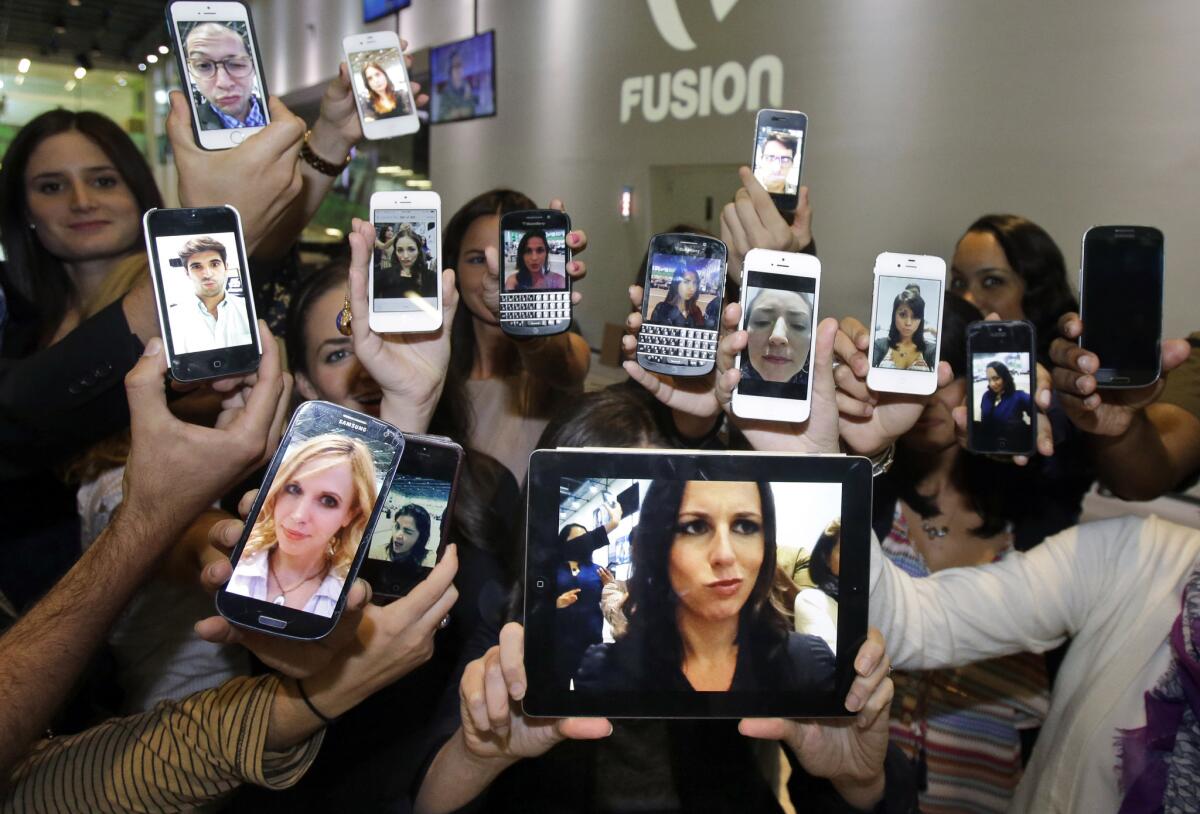‘Selfie’ is the Oxford Dictionaries’ word of the year for 2013

This is how words are born.
In 2002, an Australian man went to his “mate’s” 21st birthday party. He got drunk, tripped on some steps and cut his lip. He took a picture of his injuries and shared it with his friends on an online forum.
“And sorry about the focus,” he wrote, “it was a selfie.”
That was the first recorded use of the word “selfie,” according to the word mavens at the Oxford Dictionaries, who research such things.
On Tuesday, the Oxford Dictionaries declared “selfie” the word of the year for 2013, in honor of the relatively young coinage having taken over the world thanks to millions of smartphone self-portraits and the resulting shares in social media.
In 2004, two years after that blitzed Aussie coined the neologism, the word had spread enough that Flickr created the hashtag #selfie on its website. But research by Oxford Dictionaries editors found that the frequency of “selfie” in the English language has increased by 17,000% since this time last year.
“The word gained momentum throughout the English-speaking world in 2013 as it evolved from a social media buzzword to mainstream shorthand for a self-portrait photograph,” Oxford Dictionaries wrote in a news release. “Its linguistic productivity is already evident in the creation of numerous related spin-off terms showcasing particular parts of the body like helfie (a picture of one’s hair) and belfie (a picture of one’s posterior); a particular activity -- welfie (workout selfie) and drelfie (drunken selfie), and even items of furniture -- shelfie and bookshelfie.”
Selfie was the top word on a shortlist of trendy new words and expressions on the Oxford list that included a few others that seem likely to endure.
“Binge-watch,” which is what a lot of people did when the series “Breaking Bad” was ending (“watch multiple episodes of a television program in rapid succession”) and “bitcoin” (a digital currency) may be with us for a long time. But I’m not to sure “showrooming” is widespread enough to have much life as a coinage (it means “the practice of visiting a shop or shops in order to examine a product before buying it online at a lower price.”)
And the jury may still be out on “twerk,” which means to “dance to popular music in a sexually provocative manner involving thrusting hip movements and a low, squatting stance.”
ALSO:
Libraries win over jails in Louisiana election
Doris Lessing reveled in her status as a contrarian
Sunday Conversation: John Grisham reflects on books and politics
More to Read
Sign up for our Book Club newsletter
Get the latest news, events and more from the Los Angeles Times Book Club, and help us get L.A. reading and talking.
You may occasionally receive promotional content from the Los Angeles Times.







